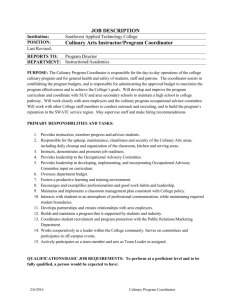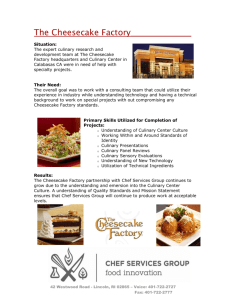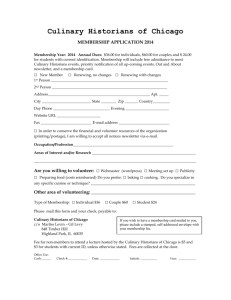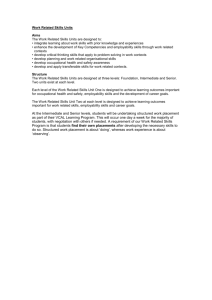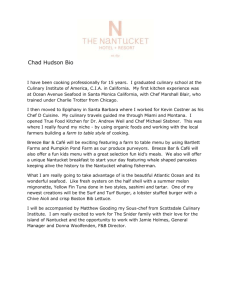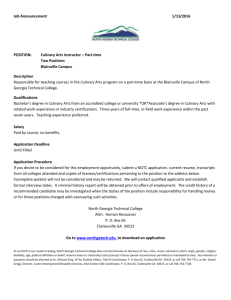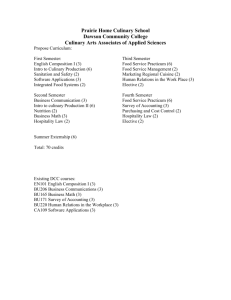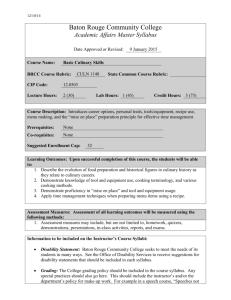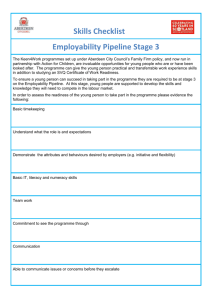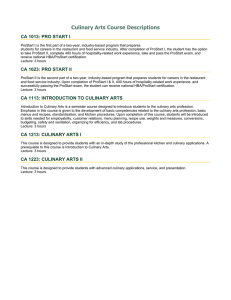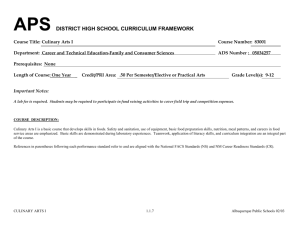Syllabus Culinary Arts
advertisement
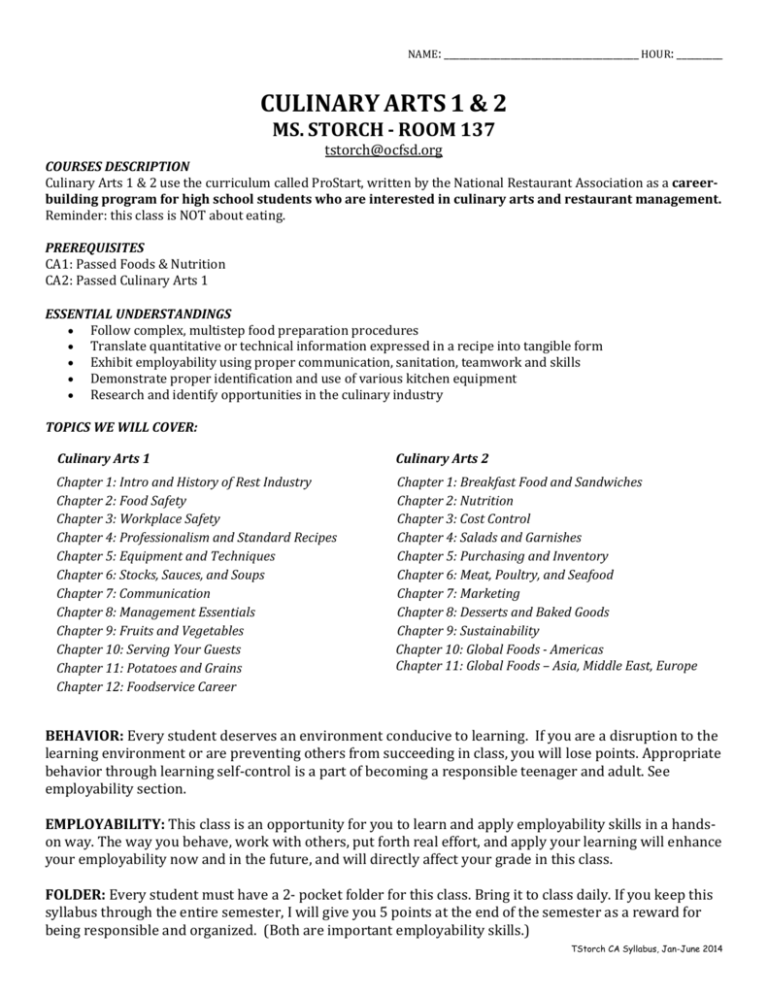
NAME: ______________________________________ HOUR: _________ CULINARY ARTS 1 & 2 MS. STORCH - ROOM 137 tstorch@ocfsd.org COURSES DESCRIPTION Culinary Arts 1 & 2 use the curriculum called ProStart, written by the National Restaurant Association as a careerbuilding program for high school students who are interested in culinary arts and restaurant management. Reminder: this class is NOT about eating. PREREQUISITES CA1: Passed Foods & Nutrition CA2: Passed Culinary Arts 1 ESSENTIAL UNDERSTANDINGS Follow complex, multistep food preparation procedures Translate quantitative or technical information expressed in a recipe into tangible form Exhibit employability using proper communication, sanitation, teamwork and skills Demonstrate proper identification and use of various kitchen equipment Research and identify opportunities in the culinary industry TOPICS WE WILL COVER: Culinary Arts 1 Culinary Arts 2 Chapter 1: Intro and History of Rest Industry Chapter 2: Food Safety Chapter 3: Workplace Safety Chapter 4: Professionalism and Standard Recipes Chapter 5: Equipment and Techniques Chapter 6: Stocks, Sauces, and Soups Chapter 7: Communication Chapter 8: Management Essentials Chapter 9: Fruits and Vegetables Chapter 10: Serving Your Guests Chapter 11: Potatoes and Grains Chapter 12: Foodservice Career Chapter 1: Breakfast Food and Sandwiches Chapter 2: Nutrition Chapter 3: Cost Control Chapter 4: Salads and Garnishes Chapter 5: Purchasing and Inventory Chapter 6: Meat, Poultry, and Seafood Chapter 7: Marketing Chapter 8: Desserts and Baked Goods Chapter 9: Sustainability Chapter 10: Global Foods - Americas Chapter 11: Global Foods – Asia, Middle East, Europe BEHAVIOR: Every student deserves an environment conducive to learning. If you are a disruption to the learning environment or are preventing others from succeeding in class, you will lose points. Appropriate behavior through learning self-control is a part of becoming a responsible teenager and adult. See employability section. EMPLOYABILITY: This class is an opportunity for you to learn and apply employability skills in a handson way. The way you behave, work with others, put forth real effort, and apply your learning will enhance your employability now and in the future, and will directly affect your grade in this class. FOLDER: Every student must have a 2- pocket folder for this class. Bring it to class daily. If you keep this syllabus through the entire semester, I will give you 5 points at the end of the semester as a reward for being responsible and organized. (Both are important employability skills.) TStorch CA Syllabus, Jan-June 2014 GRADING: Grades will be categorized and calculated as follows: 20% Assessments, 10% Coursework, 50% Labs, 20% Projects. LABS are how we apply our learning from the units as well as demonstrate employability skills. Professional behavior is expected from each student. A lab behavior/participation rubric will be given so all students understand the expectations and responsibilities of each kitchen member. You can lose points through improper behavior or lack of participation. LATE WORK: When an assignment is turned in late, 10% will be deducted from the grade. MATH: Working with numbers and basic math calculations is inherent in a cooking class and culinary environment. We will be applying math principles throughout our lessons to build on and increase your working knowledge of math. NATIONAL PROSTART EXAM: Every student has the opportunity to earn a Certificate of Recognition for level 1 and 2. Each 100 point national exam will be held during finals week at the end of the semester. I will have more information for you later on, or you can check out http://www.nraef.org/Students for more info. READING AND WRITING: Students will be reading and writing about subjects we are studying on a regular basis as per the District mandate. TStorch CA Syllabus, Jan-June 2014
